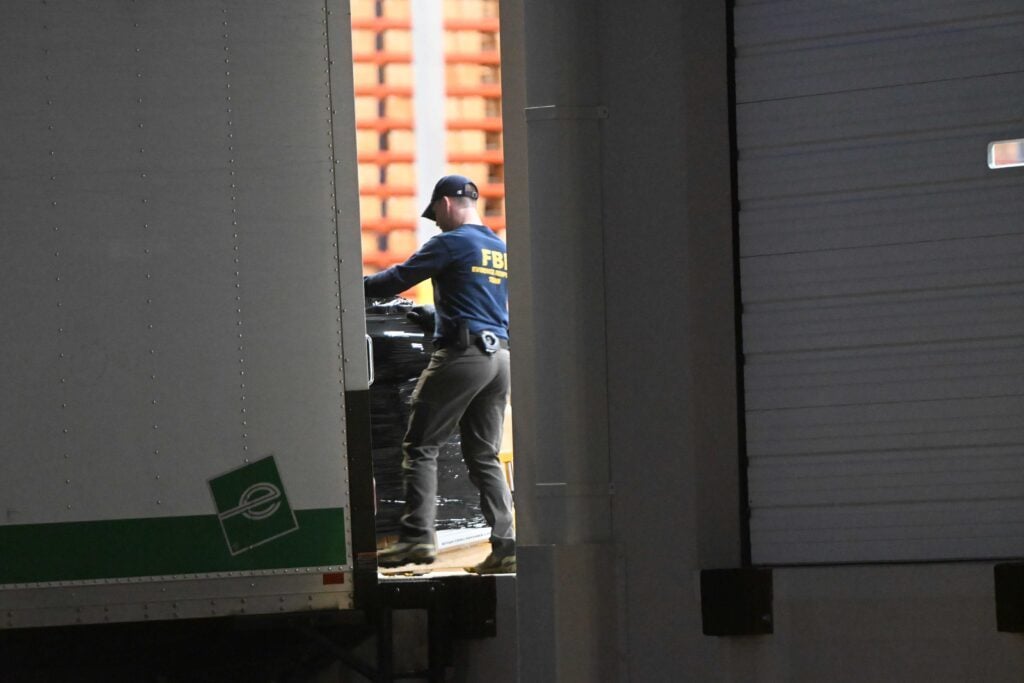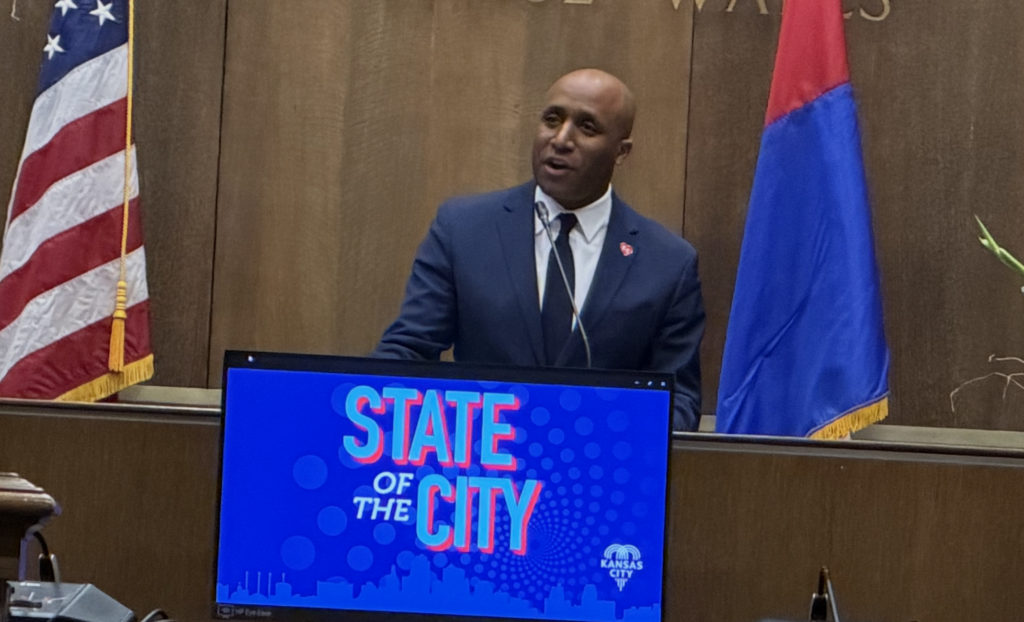Missouri anti-LGBTQ+ laws linked to population loss and decline in tax revenue, studies find
Researchers and business leaders warn that discriminatory laws are pushing LGBTQ+ Missourians and employers to leave, hurting the state’s economy.

As LGBTQ+ Missourians leave the state, they are taking their tax dollars with them. A recent analysis by the Movement Advancement Project estimates the loss of annual household income in the hundreds of millions (Illustration by Annelise Hanshaw/Missouri Independent)
When Rob Connoley shut down his award-winning St. Louis restaurant last year, business was thriving.
Tourists and locals alike lauded Bulrush as a destination for Ozark cuisine, making its way into local and national publications as a top restaurant. Profit margins were beyond national averages, and Connoley was a newly awarded James Beard Award finalist.
But it didn’t feel right.
During a trip to London to represent Missouri in an international food festival, Connoley realized he couldn’t be an ambassador for a state that didn’t respect him.
“It felt egregious and awkward to be promoting a state in a region that was actively working against my own personal interests,” he told The Independent.
Connoley, who is gay, pointed to an onslaught of anti-LGBTQ+ laws. The final push was when the Missouri Attorney General sought out transgender kids’ medical records.
So he packed up and made a home in Oregon.
“It made more sense for me to take my entrepreneurial skills and go to a community that I think would be more supportive of what I’m trying to accomplish,” he said.
For years, Missouri lawmakers have heard warnings that enacting policies targeting the LGBTQ+ population could drive individuals and businesses out of the state. Local officials and chambers of commerce raised red flags about potential impacts on recruitment and retention of employees, as well as the ability to lure businesses to the state.
Now, studies are showing that the state’s actions have already pushed LGBTQ+ Missourians to move — taking their tax dollars, and even businesses, elsewhere.
Analysis by the Movement Advancement Project estimates that around $362 million to $879 million in household income has left the state, a number that is expected to increase.
The estimate is based on a survey conducted by MAP in collaboration with The Trevor Project, a mental health nonprofit for LGBTQ+ youth. Their research shows that among LGBTQ+-identifying people ages 13 to 24, around 39% have considered moving to a different state and 4% have already moved because of policies targeting gay and transgender people.
“There is good reason to suspect this 4% estimate may be even higher in Missouri,” the report says.
A separate study conducted by the National Center for Transgender Equality and released in 2024 found 47% of transgender people have thought about moving to a different state because of discriminatory state laws, and 5% had completed a move for that reason.
Missouri is one of 10 states highlighted in the study as having a higher proportion of respondents moving away.
“When people feel unwelcome or uncertain about their future in a community, they often take their skills and their families elsewhere,” Tracey DeMarea, executive director of the Mid-America LGBT Chamber of Commerce, told The Independent. “That loss affects our workforce, our businesses and our shared sense of community.”
A St. Louis University study released in April found that 32% of parents of LGBTQ+ children have considered leaving Missouri, and 48% of LGBTQ+ adults have considered moving. Political climate was the top reason for their desire to leave.
Analyses at the national level affirm a correlation between LGBTQ+ inclusion and economic success. A 2023 Wells Fargo report showed that states with larger LGBTQ+ populations had higher rates of economic growth between 2010 and 2019. The analysis notes that people identifying as LGBTQ+ tend to be younger and higher educated, but it still found a correlation between representation and economic growth when the data was controlled for age and education variables.
“The responsibility of lawmakers is to represent communities across the state and when they pass laws that target already vulnerable communities, they should consider their actions,” Naomi Goldberg, MAP’s executive director, told The Independent. “When families choose to leave the state, the loss is not only in the vitality and diversity of the community, but also in the economic power and resources that families provide.”
Each year, Missouri lawmakers file dozens of anti-LGBTQ+ bills, with some — like gender-affirming care restrictions — becoming law. And as they make their way through committee hearings, local chambers of commerce have raised red flags about the unintended consequences. .
The harshest warnings came in January 2024, in an eight-hour hearing on multiple bills including proposed regulations on restrooms in private businesses. Lobbyists stayed past 10 p.m., telling lawmakers the bills were a threat to “free enterprise” and “business development.”
Kara Corches, president and CEO of the Missouri Chamber of Commerce and Industry, told committee members at the time that the legislation would impact communities statewide.
“We hear every day from businesses… that their ability to recruit and retain talent is their top concern to the business and economic growth in the state,” she said. “Businesses want to ensure that people feel comfortable and safe in their workplaces.”
Henry Eubank, governmental affairs coordinator for Greater St. Louis Inc., said discriminatory legislation depicts the state as unwelcoming.
“It sends a powerful negative signal to potential residents, investors, businesses and workers,” he said, “That the state of Missouri is not a place that they would want to visit, live, to do business, to start a business or move their family.”
And for some, the state no longer feels like home.
Connoley lived in the Ozarks and St. Louis areas for the majority of his life, and he saw the regional cuisine as something to highlight and promote internationally. Missouri was home until state officials went “too far.”
Rising extremism, he said, has removed a sense of community and cooperation crucial to thrive as a local business.
“Why invest my money right now,” he said, “when I don’t know that it is a good investment of my money.”
Missouri Independent is part of States Newsroom, a nonprofit news network supported by grants and a coalition of donors as a 501c(3) public charity. Missouri Independent maintains editorial independence. Contact Editor Jason Hancock for questions: info@missouriindependent.com.




